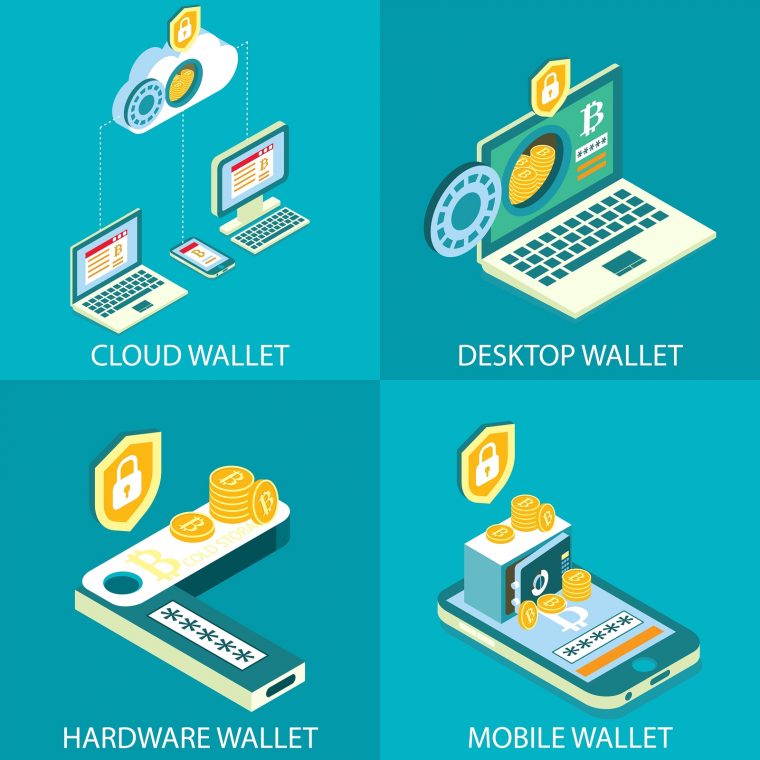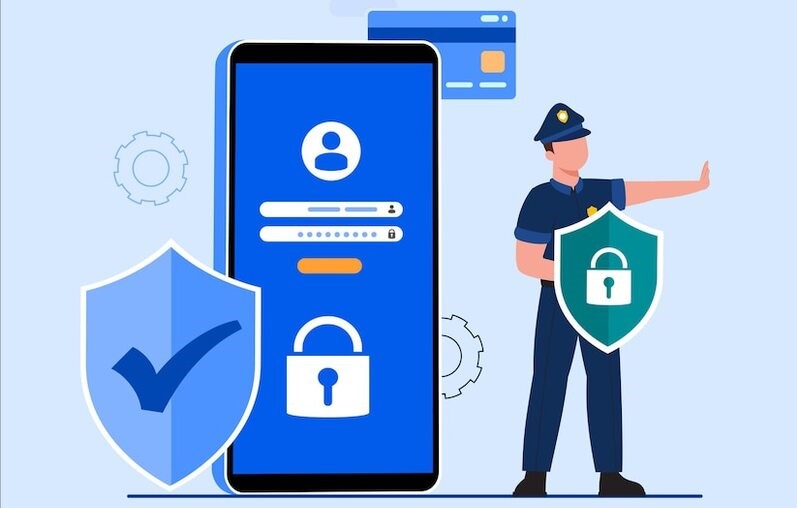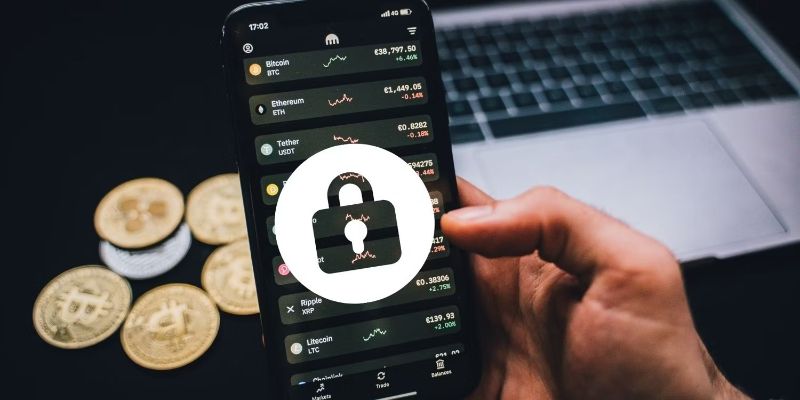Cryptocurrency speaks of the future, a brave new world of finance, where your digital coins are as precious as gold. But just as gold attracted prospectors and bandits, your crypto wealth beckons Don’t let thieves make off with your digital riches. Here, I’ll show you exactly how to avoid crypto wallet scams, keeping your hard-mined currency safe. Let’s break it down, starting with the wallet in your digital pocket. You’ll learn to spot the snakes before they strike, and arm yourself with the know-how to choose a safe that’s as secure as Fort Knox. Trust me; your future self will thank you.
Understanding the Cryptocurrency Wallet Landscape
Types of Crypto Wallets and Their Vulnerabilities
When diving into the world of digital currency, knowing your wallet options is key. You have hot wallets, online spaces to store coins that make trades quick. These are linked to the internet, so they’re handy but attract more thieves due to easy access.

Now, cold wallets are offline, like a safe for your crypto. They’re harder to crack open, but that doesn’t mean they’re invincible. Attackers still find tricks, like fake sale tricks to get you to connect your wallet online.
To stay out of trouble, we need to know the warning signs. Beware of wallets that promise big returns for small inputs. They may be Ponzi’s lurking to snatch your coins. A huge no-no is using the same password everywhere or storing it where others can see. Watch out for wallet apps that ask for too much. Legit ones never need your secret key just to log in.
Popular Crypto Wallets and Their Security Features
Lots of wallets out there want to be your pick. They’ll talk up their security, but it’s on you to check their claims. The top-shelf ones will have layers of walls to keep your coins safe. Think passwords and codes you get from your phone or email. They might even ask friends to sign off when you try to make a big move.
It’s also wise to go for wallets that keep up with safety rules. They close gaps that could let hackers waltz in. Do they have proof that a real-life expert said they’re safe? That’s a sign you’re on the right path.
So, research is your friend when choosing where to stash your crypto cash. Keeping your digital gold secure is no small task, but hey, that’s our job as owners, right? Great crypto wallet security keeps your treasure locked up tight and gives peace of mind, too. So, let’s make smart moves—our digital wealth depends on it.
How to dodge crypto wallet scams: Recognizing the Red Flags of Crypto Wallet Scams
Signs of a Scam Wallet
You have to know what looks fishy. Scam wallets can look real. They often do. But stay sharp – small hints can save you big bucks. Look for odd things in the app name, logo, or user reviews. Bad guys may change just one letter in the name. Or the logo could look strange, not crisp like it should.
Check who made the app. Reputable wallets list a well-known developer. It should be a name you can trust, a name that pops up if you do your homework on legit crypto websites. If the developer is unknown, take that as a big red light.
Now, user reviews can be tricky. Scams might have great reviews at first glance. So, dig deeper. Look for real stories from users, not just a bunch of “5-stars” with no details. Gushing reviews, all in the same tone? That’s a scam warning.
Also, watch out if the wallet wants too many permissions. No wallet needs access to your contacts or photos. Be smart. Be stingy with permissions. That’s how you keep your digital gold safe.
Spotting Fake Crypto Apps and Websites
Moving on to fake apps and sites. First, the web address should match the official one. Misspellings or weird characters? Step away fast. Secure sites use HTTPS, not just HTTP. Look for the lock icon near the address bar. No lock, no deal – it’s that simple.

They might promise big rewards or free coins. Remember the saying, “If it seems too good to be true, it probably is”? Apply that here. These promises are baits to snag your coins.
And let’s talk about apps. Your phone’s official store is where to find them – usually. Even there, fakes sneak in. Check how long the app’s been around. If it’s brand spanking new but claims to be well-used, question it. Go beyond the store – search the internet for news on the wallet. Any talk of a scam? Pass on it, look for something tried and true.
Be aware of phishing too. They aim to trick you into giving up your keys. If an email or message seems off, it’s likely a trap. They might say there’s a problem with your wallet. They might ask for your keys or a password to “fix” it. Never give this info out. Those are your keys to the kingdom.
Lastly, social media hints. Scammers love to push fake wallets there. They use accounts that seem real but aren’t. Before you click any link, pause. Check if that social media pro has solid crypto knowledge. If they don’t, they might be a pawn in a scammer’s game.
Stay alert. Knowing the red flags means you can dodge those scammy wallets. Your crypto journey should be a thrill, not a threat. Your coins matter, so your smarts should too. Exercise them. Your digital future counts on it.
Implementing Best Practices How to dodge crypto wallet scams
The Role of Two-Factor Authentication and Secure Private Keys
When you hear “crypto wallet security,” think two main things: two-factor authentication (2FA) and secure private keys. What is two-factor authentication? It’s an extra security layer for your crypto wallet. Think of it like a double-lock on your digital gold. First, you have your password. That’s good but not enough. Next, you add 2FA. Now you get a code on your phone or an app each time you log in. This way, even if someone knows your password, they can’t get in without that code.
But what about secure private keys? These are like your wallet’s secret handshake. Only you should know it. If someone else gets it, they can take your crypto. So, keep them safe. Write them down. Store them where only you can find them. Don’t share them online or with others. Let’s keep those keys under lock and key.
Choosing Between Hardware Wallets vs. Software Wallets
Now, let’s talk wallet types. You’ve got hardware wallets and software wallets. They’re like a safe versus a regular house lock. A hardware wallet stores your crypto offline. It’s like a safe. It’s harder to hack because it’s not on the web. They cost a bit, but for big amounts of crypto, they’re worth it. You plug it into your computer, move crypto in or out, and then store it safely.

Software wallets are more like your house lock. They’re on your computer or phone. They’re handy and usually free, but since they’re online, they face more risks. They can be great for small amounts or if you trade a lot.
Choosing is about balance. Ask, how much risk can I take? How much do I want to spend? How often do I trade? Answer these, and you’ll know the best wallet for you. Remember, no matter what, keep a backup of your keys. And never put all your eggs in one basket.
Understanding blockchain, keeping an eye out for scams, and picking the right wallet makes all the difference. You can dodge wallet scams and keep your digital gold secure with knowledge and the right moves.
Staying Informed and Prepared Against Crypto Fraud
Conducting Due Diligence on Crypto Resources
To avoid crypto wallet scams, you must dig deep. Never just skim the surface. Ask, “Is this crypto platform trusted by many?” If many users don’t trust it, steer clear. Always search for reviews and testimonials about the wallet you’re considering. Look at forums, social media, and tech blogs. If something feels off, trust your gut and walk away.
Before jumping in, make sure you understand blockchain. It’s the tech behind crypto. If you get how it works, you’ll spot scams easier. Learn about the types of crypto wallets too. There are hot wallets online and cold storage ones offline. Hot wallets are handy but less secure. Cold wallets are safer but not as quick to use.
Now, onto crypto wallet security. Pick wallets that put safety first. They should offer two-factor authentication (2FA). This means you need two types of proof to get into your account. This could be a password and a text message code. 2FA keeps your coins safer than a simple password.
Next, scan for signs of a scam wallet. If a wallet promises high returns for nothing, it’s a huge red flag. Real crypto won’t make you rich quick with no risk. Watch out for phishing in cryptocurrency too. These are fake emails or messages that trick you into giving up your private keys. They can look very professional, so be careful. And always secure your private keys. Never share them. Not even with a wallet service.
To beat cybercrime in blockchain technology, you must stay sharp. Hackers always find new ways to steal. So, update on crypto scam reports. These reports show the latest scams. By reading them, you’ll know what to avoid.
Spotting fake crypto apps is another key step. Double-check the app’s developer and read the reviews. If they are mostly bad, it’s a sign the app might be fake. And the same goes for websites. If a site looks poorly made or has lots of typos, beware. Legit crypto websites invest in a good user experience and clear information.
Owner’s Responsibility and Engaging with Reputable Crypto Exchanges
As an owner, you hold the power. It’s up to you to keep your crypto safe. Start by dealing with crypto theft correctly. If it happens, report it fast. Then, get in touch with reputable crypto exchanges. These are platforms known for their safety and trustworthiness.
When picking an exchange, check if they follow cryptocurrency regulations. These rules help protect you from fraud. Exchanges that don’t might be risky. And always use safe crypto storage. Your coins are like gold. You wouldn’t leave gold lying around, right? The same goes for crypto.
Choosing the right crypto wallet can seem tough. But with due diligence, it becomes simple. Research on crypto wallets before choosing one. Read what others say about them and test them out if you can.
Remember, keeping your digital gold secure is a journey. It means understanding the risks and taking active steps to protect your assets. By doing proper background checks on crypto wallets, their security frameworks, and only engaging with platforms that uphold the highest standards of security, you’ll be armed against the tide of crypto fraud. So, stay alert, stay informed, and let’s keep our digital treasures safe.
In this post, we dived deep into the crypto wallet world. We explored various wallet types and their weak spots, as well as top wallets and how they keep your coins safe. We also learned to spot scams, like fake apps and tricky sites. Then, we talked about using two-factor auth and keeping private keys safe. We also looked at choosing between hardware or software wallets. Finally, we stressed staying sharp and checking resources before jumping in.
To wrap it up, staying safe with crypto is a big deal. Make sure you use strong security steps and always check who you’re dealing with. Your digital cash is worth guarding well. Keep these tips in hand and stay ahead of the bad guys. Happy and safe trading to you! Follow Crypto Currency Bitcoin Price to update more knowledge about Crypto.
Q&A :
1. What are some common signs of a crypto wallet scam to watch out for?
Crypto wallet scams often share common red flags such as unsolicited contacts, unrealistic promises of huge returns, and pressure to act quickly. It’s essential to investigate thoroughly before parting with your digital assets. Wallet scams may also involve phony apps and websites, scheme organizers disappearing abruptly and manipulative marketing tactics.
2. How can I verify the legitimacy of a cryptocurrency wallet provider?
Before entrusting your cryptocurrency to a wallet provider, make sure to check its reputation online, read user reviews, and confirm the vendor’s contact details. Check if the provider is transparent about their operations, including who runs the company and where it’s located. Also, legit wallet providers always prioritize your privacy and security features.
3. What can I do if I’ve been scammed by a crypto wallet?
If you suspect that you’ve fallen victim to a crypto wallet scam, it’s important to take immediate action. Report the incident to local law enforcement and any platform involved in the transaction. While getting your money back might not be guaranteed, your report can alert others and help provide crucial information to catch the fraudsters.
4. How to dodge crypto wallet scams ? What best practices can help protect my crypto assets from scams?
To protect your crypto assets from scams, always enable multi-factor authentication (MFA) on your digital wallets and exchange accounts. Also, remain informed about the latest scam tactics and keep your software updated. Furthermore, it’s advisable to make use of hardware wallets for storing your cryptocurrency, as they are considered the safest.
5. How reliable are popular crypto wallets in the market?
Popular crypto wallets are generally reliable as they have built up a strong reputation due to their transparent operations, user-friendly interfaces, and robust security. However, their popularity doesn’t make them immune to scams. It’s still essential to practice vigilance and follow the safety measures when using these wallets.
